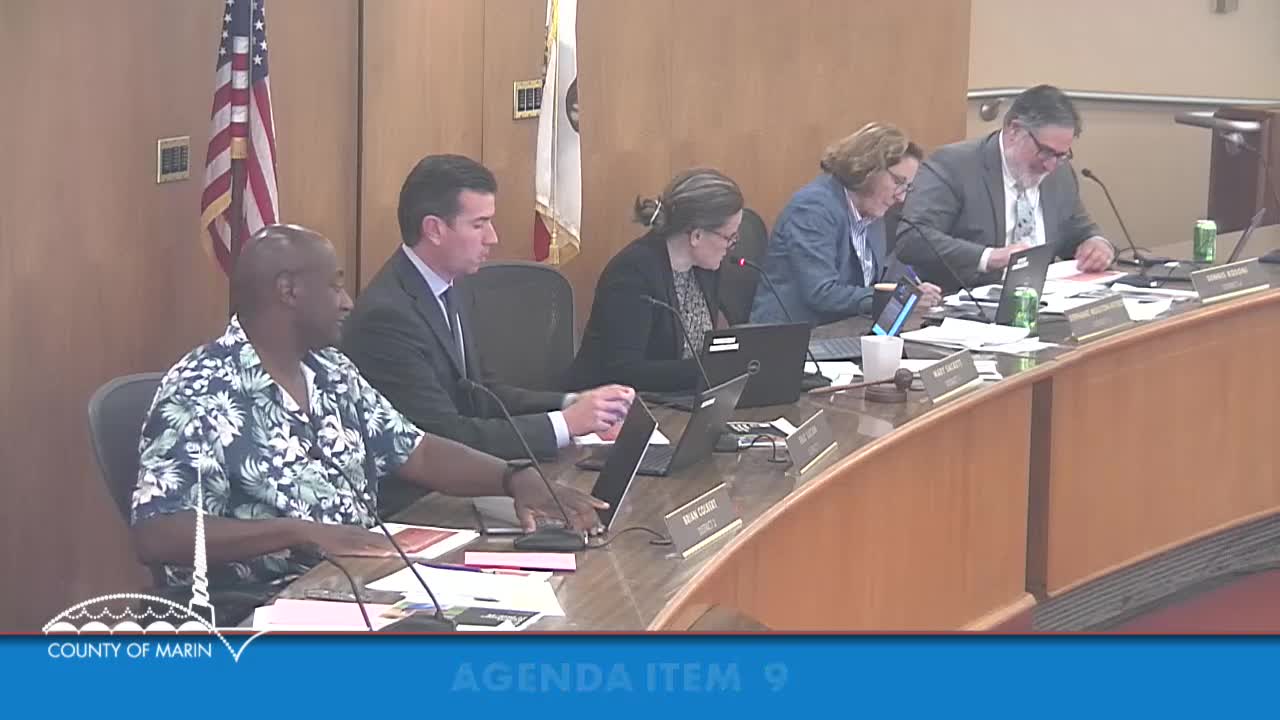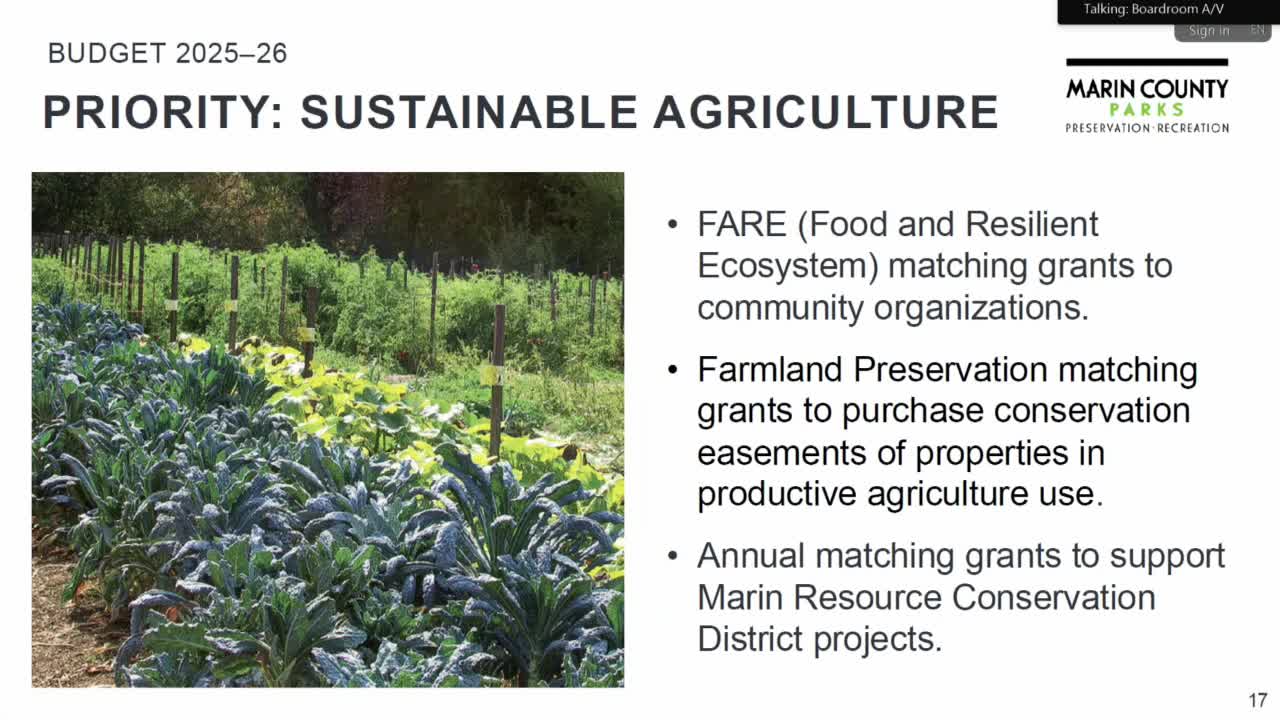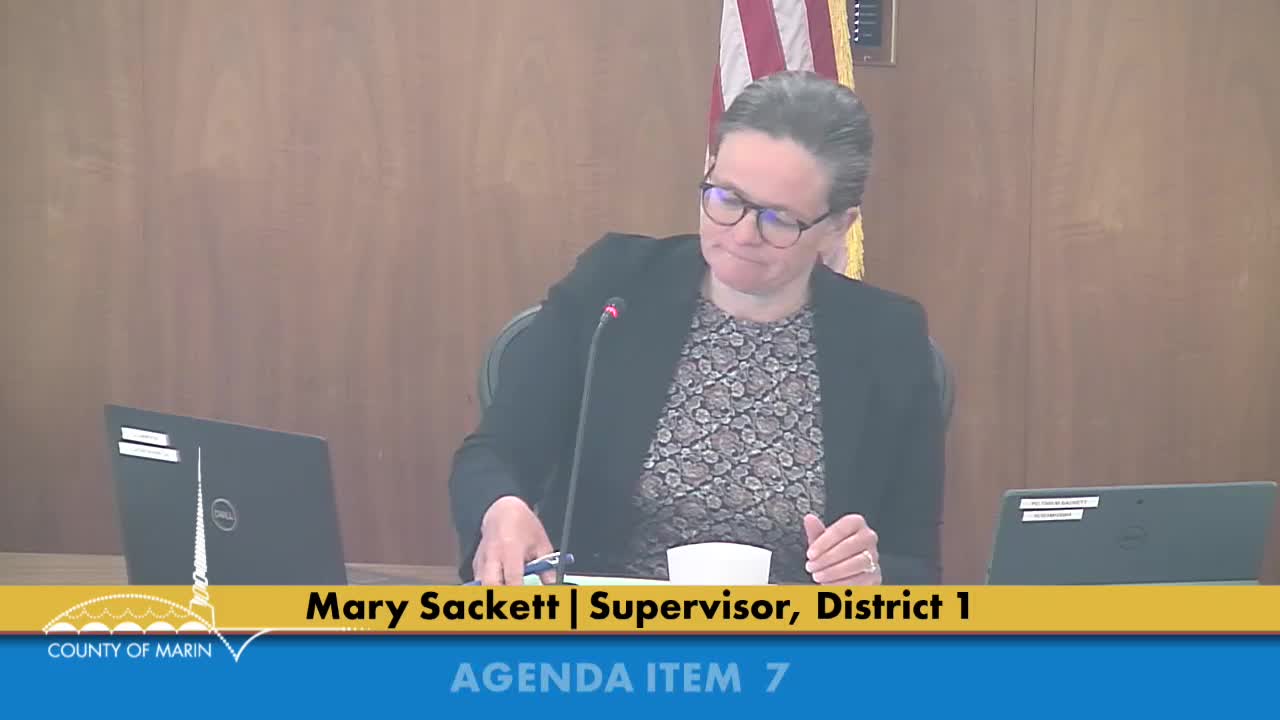Article not found
This article is no longer available. But don't worry—we've gathered other articles that discuss the same topic.

Marin County adopts flood control and stormwater budgets; supervisors press for clarity on Zone 9 funding and operations

Marin County Open Space District adopts FY2025–26 budget; Measure A to fund fuels reduction, parks and grants

